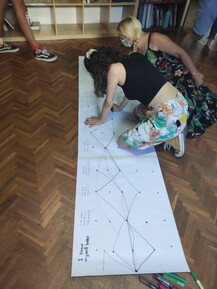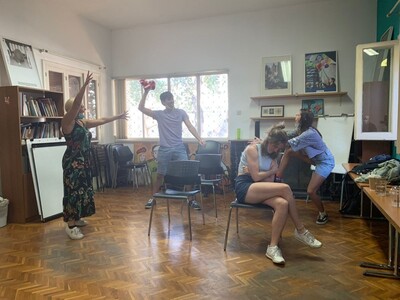1000 Layers Piloting Experiences to create the Identity Card Game
- La Xixa
- Aug 31, 2021
- 2 min read
Updated: May 7, 2022
The first 1000 Layers piloting activities have started! The partner organizations from France, The Netherlands, Spain and Cyprus developed group activities with diverse youngsters to reflect on identity and its layers.
These experiences are the inspiration for the 1000 Layers Identity Card Game, which is a training material co-constructed with young people through piloting, to introduce youth workers to the complexity of identity processes as well as to provide them with tools to work around topics of identity with youth in both online and offline contexts.
The output is composed of:
• a set of 30 identity cards: each one giving the definition of a key concept related to identity. On the flipside of each card we present a case study to connect the concept to real life phenomena. Case studies will come from the participants of our workshops, from their own life stories, or from research they undertake, and will serve to illustrate the concept. The cards will be carefully designed to be visually attractive and with adequate language to be used by both youngsters, young people and Youth workers alike. The cards will be available for download in a digital/printable format, either to be used on screen or to be comfortably printed according to needs.
• 6 activities: the cards will be accompanied by 6 activities (described in the form of method sheets). The activities will be based on piloting experiences, and will provide guidelines on how to use the cards.
Both the identity cards and the activities will be developed taking into account how identity-based conflict is expressed both on and offline, and special care will be put into incorporating the development of skills for critical media literacy within output contents.
OBJECTIVE
The main objective of “identity cards” is to offer the vocabulary and conceptual background for youth and youth workers to understand identity-related dynamics (e.g. formation of higher and lower status identities, conflicts, stigmatization, discrimination based on identity, etc.) and identity threats that can emerge in the youth groups they are involved with. We wish to go beyond offering a bouquet of theoretical concepts that are difficult to connect to the lived realities of young people and embed the concepts in case studies, that is, situations coming from young people’s lives.
Find this output in the "Results" section www.1000layers.eu/results
























Comments